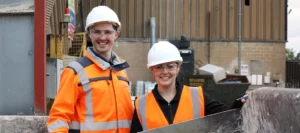Restore nature so it can absorb carbon emissions, says new report
We must restore natural habitats to enable them to absorb human-made carbon emissions, according to a report published today (June 24) by The Wildlife Trust.
According to the organisation, a wide variety of landscapes in the UK can store carbon and have the potential to absorb a third of all UK emissions if these degraded habitats were to be restored.
The Wildlife Trust is calling on the government, industry and local authorities to not just invest in tree-planting but to also protect and restore grasslands, wetlands and peatlands, all of which are essential carbon sinks.
The organisation is also urging the government to restore nature at sea by introducing effective management for the network of Marine Protected Areas and by designating a suite of Highly Protected Marine Areas.
According to the trust, these measures would bring oceans back to health and would enable them to function properly and absorb more CO2.
The benefits of restoring natural habitats go beyond absorbing CO2 but will also help to reduce the risk of flooding, help prevent coastal erosion, improve people’s health and ensure that ecosystems are maintained for the pollinators, soils, food and water which humans need.
In the report, The Wildlife Trust has highlighted various projects that they have been involved in that have successfully protected habitats to ensure they can absorb as much carbon as possible. For example, the Green Fen project in Cambridgeshire that involved re-wetting and restoring 3,700 hectares of fen, and will save over 325,000 tonnes of CO2 from being released each year through peat loss.
Craig Bennett, CEO of The Wildlife Trusts says: ‘We cannot tackle the climate crisis without similar ambition to meet the nature crisis head on – the two are inseparable.
‘The climate crisis is driving nature’s decline while the loss of wildlife and habitats leaves us ill-equipped to reduce our emissions and adapt to change. It makes no sense to continue destroying natural habitats when they could help us – nature’s fantastic ability to trap carbon safely and provide other important benefits is proven.
‘But nature in the UK is in a sorry state and important habitats are damaged and declining. Efforts to cut our emissions must be matched with determined action to fix our broken ecosystems so they can help stabilise our climate. Restoring nature in the UK needs to be given top priority – we’re calling on the Government, industry and local authorities to step-up investment urgently.’
Photo Credit – Pixabay















